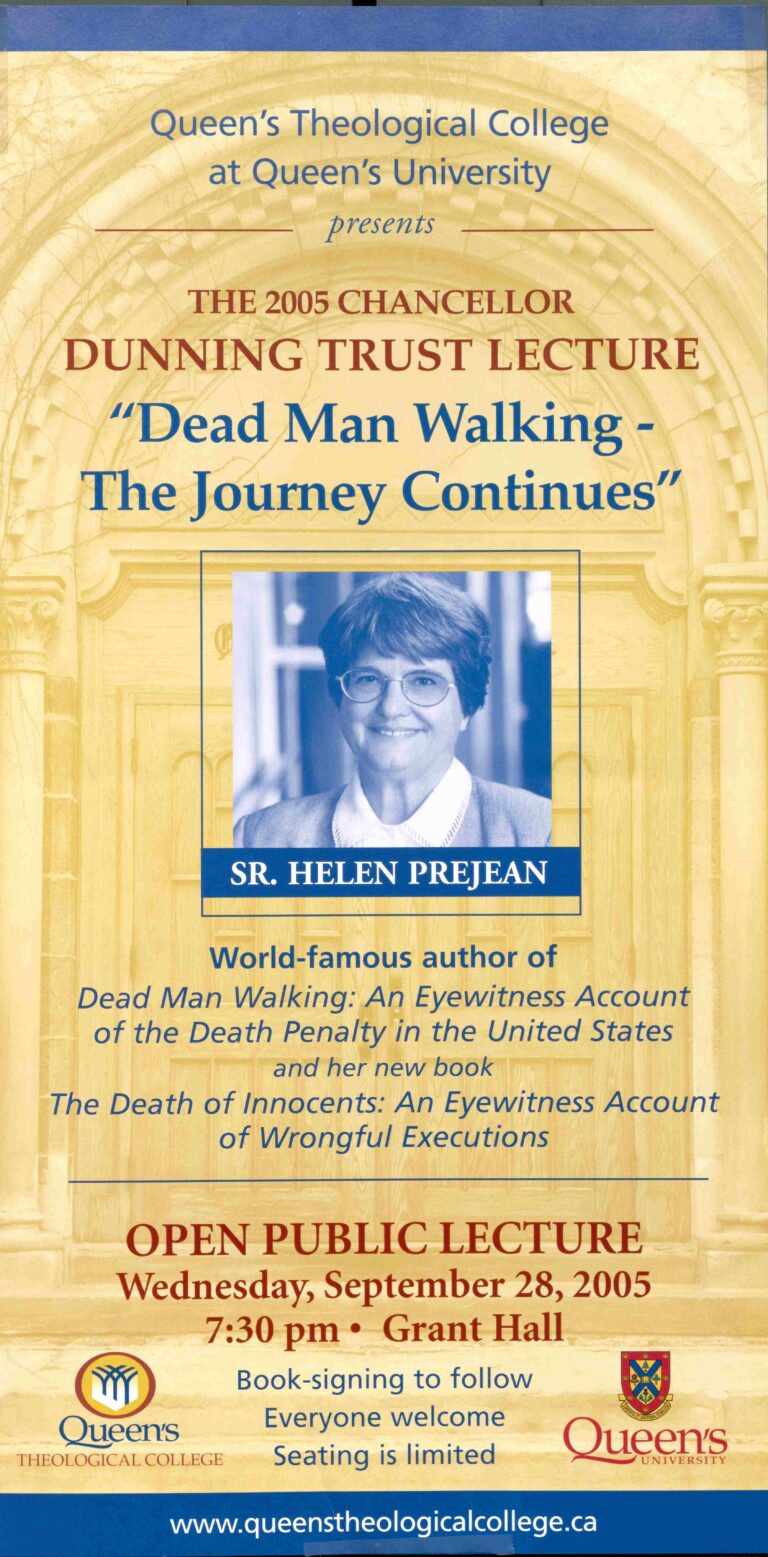
Sister Helen of St. Joseph of Medaille, New Orleans is a Roman Catholic nun. She has been a spiritual advisor to many individuals on death row. She wrote a book, Dead Man Walking: An Eyewitness Account of the Death Penalty in the United States (1993), based on these experiences. Dead Man Walking was a New York Times Bestseller for 31 weeks and a 1993 Pulitzer Prize winner. It was later turned into a movie that received four Academy Award nominations, and in 2000 it was adapted into an opera. Her second book, The Death of Innocents (2004), published shortly before her lecture, followed two death row inmates she believed to be innocent.
Prejean’s lecture addressed her work as an anti-capital-punishment activist, a position she adopted after her experiences as a spiritual advisor to those on death row. She likened the unjust and unequally-shared effects of the death penalty – which is mostly applied to inmates who are poor and Black, convicted of killing white people, with poor legal counsel – to the flooding suffered by similar populations during and after Katrina. The devastation of Katrina, she said, symbolized what America does to its most vulnerable and disenfranchised citizens. She spoke about her two books. She hoped that her work would galvanize people in and out of the United States into vocal opposition of the death penalty. She also praised Canada’s rejection of the death penalty and move towards restorative justice. Most of all, she urged the audience to understand that a person is worth more than the worst act of their life. The death penalty was not only horrendous for those who are innocent, but also guilty.
The lecture was held on September 28, 2005. More than 250 people attended.
